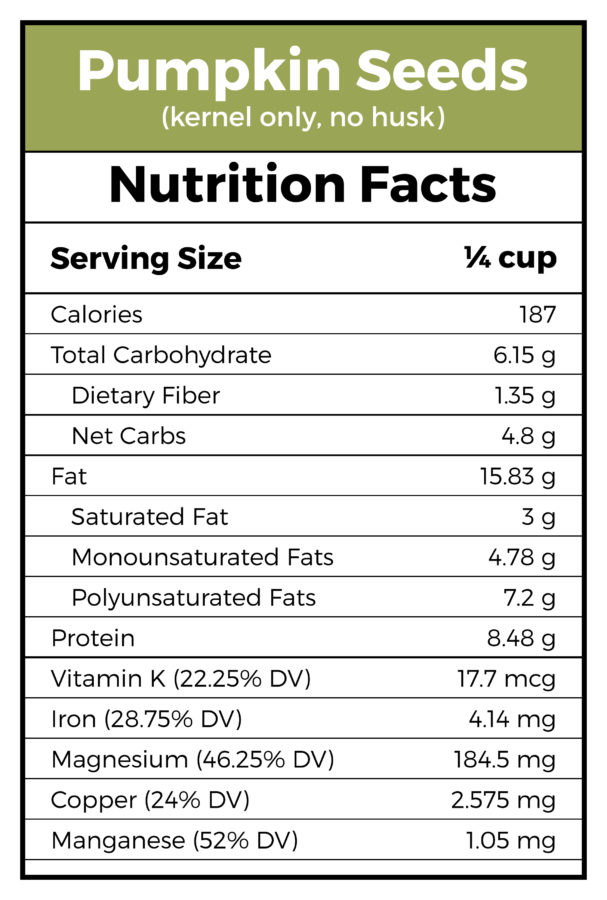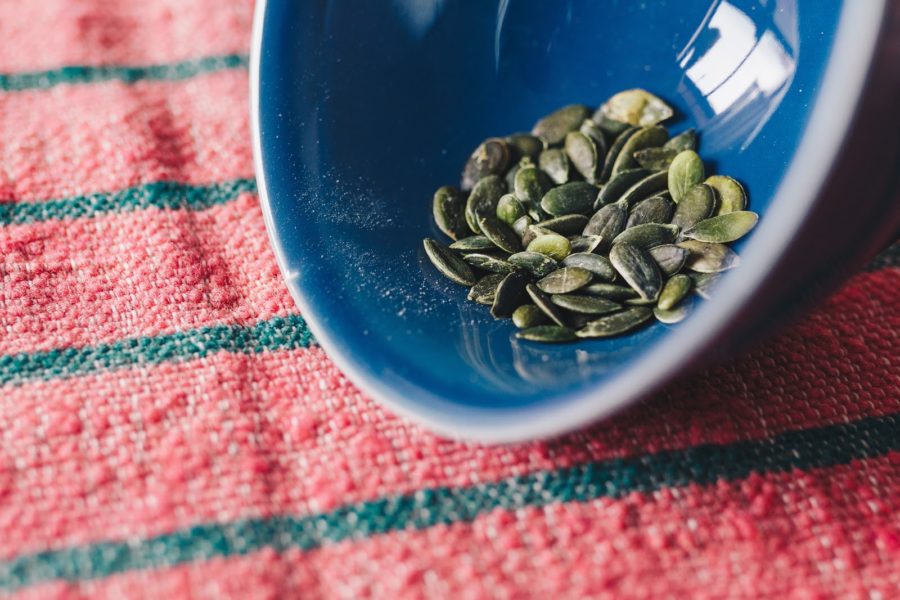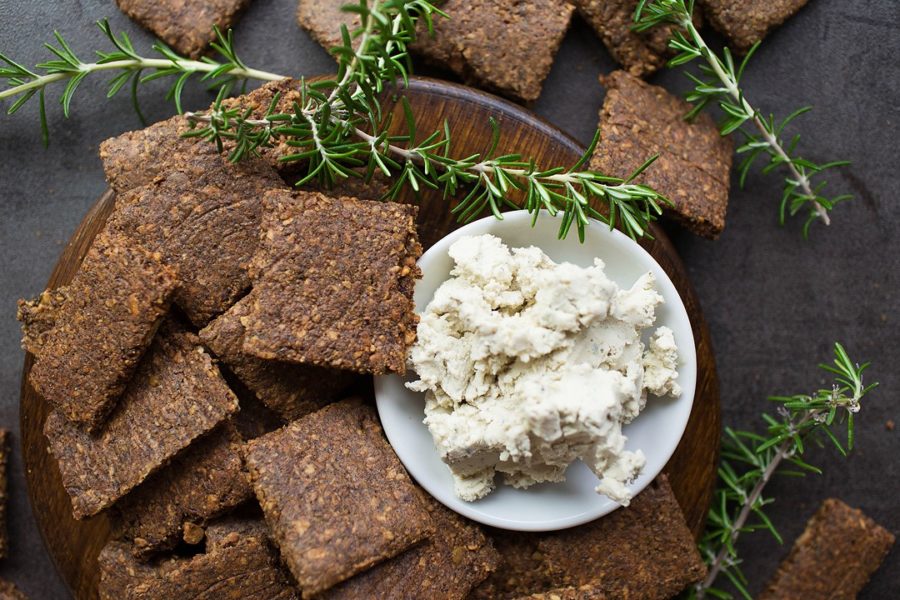Nuts and seeds play a valuable role in the keto diet. These convenient and widely available foods are low in carbs and high in dietary fiber and healthy fats, making them the perfect snack to help you meet your macros. But what about the carbs in pumpkin seeds?
Pumpkin seeds are packed with nutritional value and contain a meaningful amount of healthy fats, amino acids, and vital nutrients. However, you may be wondering if the carbs in pumpkin seeds make them an acceptable part of your ketogenic lifestyle.
The good news is that pumpkin seeds are not only keto-friendly, but they’re a smart addition to your keto meal plan.
Pumpkin Seed Nutrition
Since seeds are considered embryonic (just like little plant embryos), they naturally contain all the nutritional power the plant needs to sprout and thrive. This makes them little powerhouses of essential nutrients.
According to the USDA, pumpkin seeds — also known as pepitas — deliver considerable amounts of copper, calcium, potassium, magnesium, iron, and vitamin A, E, and K[*].
Just a one-fourth cup serving size of pumpkin seeds (seed kernels only, no husk) contains[*]:

Health Benefits of Pumpkin Seeds
Seeds and nuts are one of the most popular snacks in the healthy eating community and amongst keto followers for good reason. These foods are versatile, easy to carry, and deliver immense health benefits. Pumpkin seeds are no exception.
#1: Pumpkin Seeds Are a Great Source of Magnesium
Your body uses magnesium in more than 300 enzymatic reactions, including food metabolism, muscle recovery, and nerve function[*].
That’s why signs and symptoms of magnesium deficiency often include headaches, migraines, sore and tender muscles, hyperirritability (being excessively grumpy for no reason), exaggerated symptoms of PMS, and muscle spasms[*].
A one-fourth cup serving of pumpkin seeds provides nearly 50% of your daily value of magnesium. Magnesium is also important for keeping your blood pressure and blood sugar in check[*].
In one 12-week study in patients with advanced kidney disease, seed supplements reduced blood sugar, insulin levels, and inflammatory markers, thanks to their nutritional and fatty acid profile[*].
#2: Pumpkin Seeds Are a Natural Source of Iron
Iron can be a tricky nutrient to supplement. Unless you’re anemic or are otherwise directed by your doctor, you’ll want to get your iron from natural sources such as pumpkin seeds.
Also, keep in mind that iron supplementation may come with some side effects like[*]:
- Bloating
- Constipation
- Diarrhea
- Nausea
- Upset stomach
- Headaches
Iron deficiency can feel like[*]:
- Fatigue
- Weakness
- Headaches
- Shortness of breath
- Cold hands and feet
- Brittle nails
Consuming raw, organic pumpkin seeds is a simple and delicious way to avoid iron deficiency. These seeds pack nearly a third of your daily iron needs.
Women are much more likely to become iron-deficient, especially menstruating ladies. Adding pumpkin seeds regularly to your diet can help you stay healthy and may even prevent certain conditions, such as anemia, to develop.
#3: Pumpkin Seeds May Help Lower Blood Sugar Levels
Pumpkin seeds are high in protein, healthy fats, and fiber, and have a very low carb count. One ounce of these little beauties contains about 4 grams of net carbs, making them the perfect ketogenic snack or addition to your favorite keto recipe[*].
Studies suggest that pumpkin and pumpkin seed preparations can lower inflammation and blood sugar, which can help those who suffer from diabetes[*].
Diets high in dietary magnesium can also contribute to lower incidences of type 2 diabetes. An observational study found that people who consumed more magnesium were 33-34% less likely to develop type 2 diabetes[*].
#4: Pumpkin Seeds Are a Good Source of Healthy Fats
Pumpkin seeds contain both omega–3 and omega–6 fatty acids. These compounds are vital for a healthy, well-rounded, diet and they both deliver great benefits.
But omega–3s are notoriously more difficult for Americans to get in their diet. Most Westerners consume more omega–6 fats in the form of vegetable oils and processed foods than is recommended — about 20:1 O6:O3 ratio[*].
The ideal ratio would be around 4:1 or even 1:1.
Pumpkin seeds don’t just offer a supply of omega–3s — they also provide an inactive omega–6 fatty acid called linoleic acid (LA). LA gets converted in your body into gamma-linolenic acid (GLA), an anti-inflammatory compound that helps fight free radicals and oxidative stress[*][*].
Now that you’ve learned about carbs in pumpkin seeds, and the immense health benefits these seeds can provide to your overall health, it’s time to discover the best way to buy and store them. You’ll also learn about some safety concerns.
How to Buy and Store Pumpkin Seeds
Like all of your groceries, quality matters when it comes to choosing and buying your seeds. Here’s what to look for in the highest quality seeds possible:
- Organic
- Lightly dry roasted or raw
- Small batch
- No additive oils, like pumpkin seed oil
- No unwanted additives like sweeteners or preservatives
Safety Concerns About Pumpkin Seeds
Even though pumpkin seeds come packed with many health benefits, it’s essential to know how to eat them properly so you can enjoy all their goodness. Below you can find safety tips about these nutty snacks.
Phytates or Anti-Nutrients
Phytic acid is a natural compound that plants produce to protect themselves from predators. You can find phytic acid in nuts and seeds like Brazil nuts, sunflower seeds, chia seeds, sesame seeds, and flaxseed.
But despite having a bad reputation, phytic acid isn’t quite as bad as some people make it out to be.
This anti-nutrient can impair the absorption of some vitamins and minerals like zinc, iron, and calcium. However, this only applies to the meal you’re eating the phytic acid with — not your entire day’s food intake[*].
Phytic acid can also be tough to digest, which is especially problematic if you already suffer from gut issues like dysbiosis or leaky gut.
If you’re worried about phytic acid, there are a couple of things you can do:
- Avoid consuming massive amounts of nuts, seeds, and legumes.
- Purchase sprouted seeds or soak your own raw pumpkin seeds in water overnight. Roast your seeds on low temperature with a little sea salt until they’re perfectly crispy.
This preparation will also help if you’re worried about phytic acid’s effect on your gut lining.
Omega–6 Fatty Acids
You need high-quality sources of omega–6 fatty acids to thrive, but too many can cause inflammation and throw off your omega–6 to omega–3 fatty acid ratios.
Pumpkin seeds contain omega-6 fatty acids but in their inactive linoleic acid (LA) form. To convert these into anti-inflammatory gamma-linolenic acid (GLA), you’ll need plenty of cofactors like vitamin C, zinc, magnesium, and vitamin B6[*].
In short, if you’re following a healthy keto diet with plenty of good fats and no harmful vegetable oils, you won’t have to worry about becoming omega–6 dominant.
Make sure to eat your pumpkin seeds as a part of a diverse keto meal plan, including plenty of low-carb veggies, high-quality protein, and healthy fats to get all the benefits of GLA.
Recipes for Pumpkin Seeds
Pumpkin seeds not only make for a great on-the-go snack, but they’re also versatile and work well in crunchy keto-friendly dishes. Here are two ways to enjoy these powerful seeds.
Roasted Pumpkin Seeds

Freshly roasted pumpkin seeds are delicious, nutty, and easy to prepare at home.
- Preheat your oven to 350°F.
- Take raw, unshelled pumpkin seeds and mix with sea salt and a dash of cayenne pepper.
- Add a little extra virgin olive oil and mix well.
- Spread thinly on a baking sheet and bake for 15 to 20 minutes.
Crunchy Keto Rosemary Crackers

This recipe for crunchy keto rosemary crackers is a perfect snack when you’re craving crackers but want to stay in ketosis. With a total of 35 minutes prep time, this recipe blends olive oil with rosemary and garlic to bring out a satisfying and savory nutrition profile.
Carbs in Pumpkin Seeds: Small in Size, Powerful in Nutrition
It can be difficult to find foods with a satisfying crunchiness when you’re on a low-carb or ketogenic diet.
Roasted pumpkin seeds can be a great way to provide that crunch with a nutty, delicious taste that you can sprinkle on top of everything from salads to soups or keto oatmeal.
Plus, you can grind up pepitas in your food processor and use them in place of flour, or mix them with coconut or almond flour to up its healthy fat content. They also make a great substitute for sunflower seeds when you’re preparing your favorite keto granola mix.
Pumpkin seeds are gluten-free and vegan. They pack a lot of nutrition, are easy to find at most stores, and are fairly inexpensive. You can also use them when you roast your own pumpkin or squash at home.
As long as you’re tracking your macros, the carbs in pumpkin seeds can fit within your keto lifestyle.
To learn more about other nuts and seeds (like pecans, hazelnuts, and macadamia nuts), their health benefits, and if they can be a part of your keto diet, take a look at these articles:
